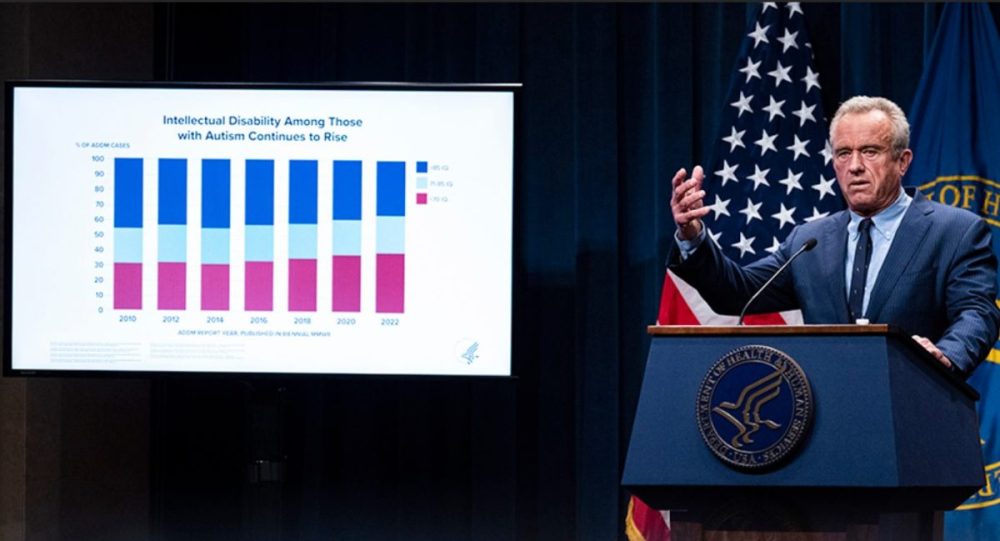National Autism Registry Seeks to End Disorder
April 24, 2025 – Robert F. Kennedy Jr., serving as Secretary of Health and Human Services, has initiated a national autism registry aimed at identifying the causes of autism through extensive data collection. This initiative involves the National Institutes of Health (NIH) compiling private medical records from various federal and commercial sources, including pharmacy chains, lab tests, insurance claims, and data from wearable devices like smartwatches.
Autism Spectrum Disorder (ASD), commonly referred to as autism, is a neurodevelopmental condition that affects how a person communicates, interacts, and experiences the world. It’s characterized by differences in social interaction, communication, and behavior. These differences can vary widely, making autism a “spectrum” disorder, meaning individuals experience it in unique ways.
The registry is designed to consolidate fragmented health data into a comprehensive platform, facilitating research by providing access to a broad spectrum of patient information. NIH Director Dr. Jay Bhattacharya has indicated that the platform will support studies into chronic diseases and autism, with the goal of enabling real-time health monitoring and research.
“Secretary Kennedy remains committed to working toward a society where people with autism have access to meaningful opportunities, appropriate supports, and the full respect and recognition they deserve,” department press secretary Vianca N. Rodriguez.
However, the plan has raised significant privacy concerns. Advocacy groups, such as the Autistic Self Advocacy Network, have expressed alarm over the potential use of sensitive medical data without individuals’ consent, questioning the transparency and ethical implications of the registry. citeturn0search4 Critics also challenge Kennedy’s characterization of autism as a “preventable disease,” arguing that it stigmatizes individuals on the spectrum and overlooks the complexity of the condition.
While the initiative aims to advance autism research, the lack of clear protocols regarding data privacy, consent, and the use of collected information continues to be a point of contention among experts and advocacy groups.



